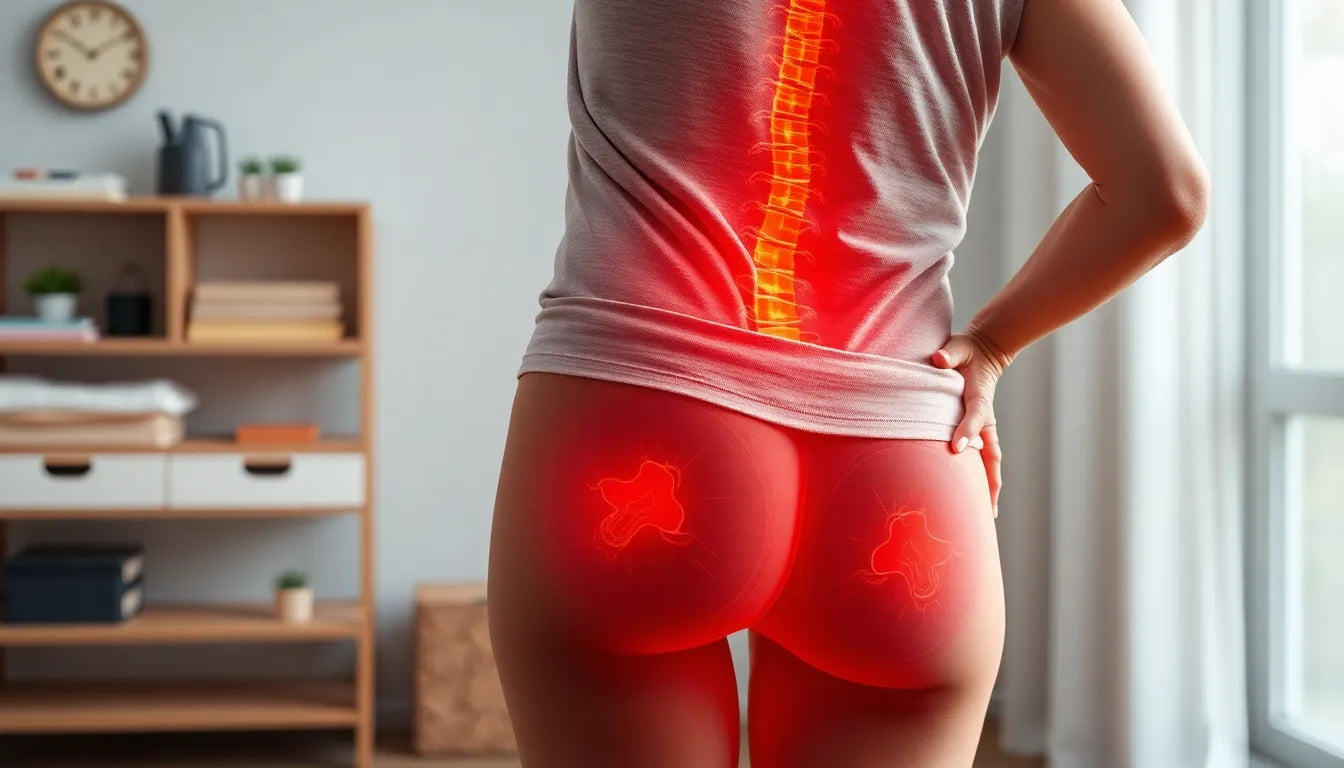In today's fast-paced world, chronic neck tension has become an increasingly common ailment, affecting a significant portion of the population. This persistent discomfort is often characterized by a constant feeling of tightness and pain in the neck area, which can significantly impact one’s quality of life. The prevalence of chronic neck tension is largely attributed to modern lifestyle choices, such as prolonged periods of sitting, excessive screen time, and high stress levels. These factors contribute to muscle strain and tension, highlighting the importance of addressing this issue for overall health and well-being.
the impact of neck tension on daily life
Chronic neck tension is more than just a minor inconvenience; it can have far-reaching effects on daily activities and productivity. Individuals suffering from this condition may find it difficult to concentrate, as the persistent pain can be a constant distraction. Over time, untreated neck tension can lead to more serious issues, such as chronic pain syndromes and posture-related complications. This can further exacerbate discomfort and potentially lead to a cycle of pain and reduced mobility, affecting both personal and professional aspects of life.
setting the stage for relief
Are you experiencing persistent neck pain that just won't go away? Are you searching for effective solutions to alleviate this discomfort? This blog post aims to unravel the mystery of chronic neck tension by exploring its causes, symptoms, and a variety of treatment options. Understanding the root causes of neck tension is the first step towards finding relief. By identifying common triggers and implementing targeted strategies, you can take control of your neck health and enhance your quality of life. Stay tuned as we delve deeper into the mechanisms behind chronic neck tension and discover practical approaches to manage and alleviate this common condition.
exploring common causes and symptoms of chronic neck tension
Chronic neck tension often arises from several lifestyle and posture-related factors. One of the most prevalent causes is poor posture, particularly from prolonged sitting or extensive screen use. This is common in our digital age, where many spend hours hunched over computers or mobile devices. Such positions can lead to muscle strain and tension in the neck and shoulders.

Men's Posture Shirt™ - Black
Forbedrer holdning, aktiverer muskler og kan lindre spændinger og smerter i nakke og skuldre.

Women's Posture Shirt™ - Black
Understøtter holdning, aktiverer muskler og kan lindre nakkesmerter og spændinger.
Another significant contributor is muscle overuse, which can occur from repetitive movements or maintaining the same position for extended periods. Stress also plays a critical role, as it can cause muscle tightening and exacerbate discomfort. Lastly, sleeping in awkward positions without proper neck support can lead to stiffness and tension upon waking.
The symptoms of chronic neck tension are often unmistakable. They include a persistent feeling of tightness and pain in the neck area, which can radiate to the shoulders or upper back. This discomfort often results in reduced mobility, making it challenging to perform daily tasks. Additionally, many people experience headaches linked to neck tension, further impacting their quality of life.
effective treatment and self-management strategies
Addressing chronic neck tension requires a combination of self-care practices and, in some cases, professional intervention. One of the most accessible methods is incorporating regular stretching and exercises into your routine. Simple neck stretches and strengthening exercises can significantly alleviate tension and improve flexibility. For example, gently tilting your head side to side or rolling your shoulders can help release built-up tension.
Heat and cold therapy are also effective in managing neck tension. Applying a warm compress can relax tight muscles, while cold packs can reduce inflammation and numb sharp pain. It's essential to use these therapies appropriately; heat is generally more beneficial for muscle tightness, whereas cold is better for acute pain.
For those seeking additional relief, massage and acupuncture can be beneficial. These therapies can enhance relaxation and improve circulation, although it's important to note that the evidence supporting their effectiveness is mixed. Combining these treatments with other interventions, such as physical therapy, can provide more comprehensive relief.
Medications are another option for managing chronic neck tension. Over-the-counter pain relievers, such as NSAIDs and acetaminophen, can offer temporary relief. In more severe cases, muscle relaxants may be prescribed, but these should be used with caution and under medical supervision.
importance of lifestyle changes and ergonomic adjustments
Preventing and managing chronic neck tension often involves making lifestyle changes and ergonomic adjustments. Ensuring that your work environment is ergonomically sound is crucial. This includes using ergonomic chairs and workstations that support proper posture. Regular breaks to stretch and move around can also prevent muscle strain from prolonged sitting.
Physical therapy can be invaluable for those with persistent neck tension. A physical therapist can provide tailored exercises and guidance to address specific biomechanical issues, helping to prevent recurrence and improve overall neck health.
By understanding the common causes and symptoms of chronic neck tension and implementing effective treatment and self-management strategies, you can significantly improve your quality of life. Whether through simple lifestyle adjustments or professional therapies, taking proactive steps can help you find relief and maintain a healthy, pain-free neck.
exploring clinical interventions for chronic neck tension
For individuals who find that self-care measures and lifestyle changes are insufficient, clinical interventions may provide additional relief from chronic neck tension. A stepwise approach is typically recommended, starting with the least invasive treatments. Initially, healthcare providers may suggest physical therapy or chiropractic care, which can offer targeted exercises and manual adjustments to alleviate tension and improve alignment.
For more persistent cases, medical professionals might consider injections, such as corticosteroids or trigger-point injections, to reduce inflammation and relieve pain. These interventions are generally reserved for individuals who do not respond to conservative treatments. Surgery is considered a last resort and is only recommended in severe cases where there is significant nerve or spinal cord compression.
complementary therapies and emerging treatments
In addition to traditional medical treatments, several complementary therapies can support the management of chronic neck tension. Techniques such as Transcutaneous Electrical Nerve Stimulation (TENS), traction, and biofeedback are gaining popularity as adjunctive therapies. TENS involves the use of low-voltage electrical currents to relieve pain, while traction can help stretch and realign the spine. Biofeedback, on the other hand, teaches individuals to control physiological processes, potentially reducing muscle tension.
While these therapies can be beneficial, it's important to view them as supplementary to primary treatments rather than standalone solutions. Consulting with a healthcare provider can help determine the appropriate combination of therapies for each individual’s needs.
conclusion: finding the right balance for neck tension relief
Achieving relief from chronic neck tension often requires a comprehensive approach that combines self-care, lifestyle changes, and professional interventions. By understanding the underlying causes and implementing targeted strategies, individuals can effectively manage their symptoms and improve their quality of life. Whether through ergonomic adjustments, regular exercise, or clinical treatments, finding the right balance is key to maintaining a healthy, pain-free neck.
frequently asked questions
What are the most common causes of chronic neck tension?
Chronic neck tension is commonly caused by poor posture, muscle overuse, stress, and awkward sleeping positions. These factors can lead to muscle strain and tightness, contributing to persistent discomfort.
How can I relieve neck tension at home?
To relieve neck tension at home, engage in regular stretching exercises, maintain proper ergonomics at your workstation, and alternate between heat and cold therapy to manage pain and inflammation.
When should I seek professional help for neck tension?
Consider seeking professional help if you experience persistent neck pain that does not improve with self-care measures or if your symptoms significantly interfere with daily activities.
Are there any effective medications for neck tension?
Over-the-counter medications such as NSAIDs and acetaminophen can provide temporary relief from neck tension. For more severe cases, consult a healthcare provider for prescription options.
What role does ergonomics play in preventing neck tension?
Ergonomics plays a crucial role in preventing neck tension by promoting proper posture and reducing strain during daily activities. Using ergonomic chairs, workstations, and neck support can help maintain alignment and prevent muscle strain.
Kilder
- Cleveland Clinic. (n.d.). "Neck Pain."
- Hospital for Special Surgery. (n.d.). "Chronic Neck Pain."
- Healthline. (n.d.). "Neck Tension: Symptoms, Causes, and Treatments."
- Cleveland Clinic. (n.d.). "Stiff Neck."
- Mayo Clinic. (n.d.). "Neck Pain: Symptoms and Causes."
- Wiles, D. (n.d.). "5 Common Causes of Chronic Neck Pain."
- Pain Free NYC. (n.d.). "Tension Neck Syndrome."
- Harvard Health Publishing. (n.d.). "Neck Pain."
- Progressive Pain Management. (n.d.). "Chronic Neck Pain: Symptoms, Treatment, and Prevention."


















